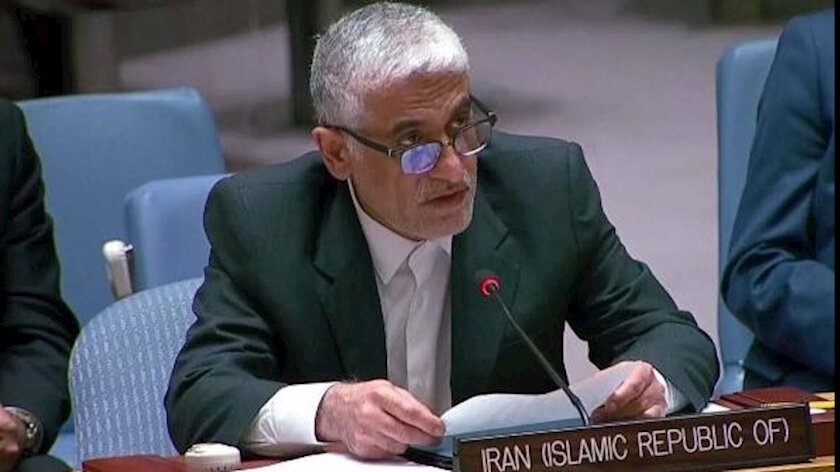Iran demands WMD-Free zone in response to Israeli actions in Gaza

TEHRAN – Iran's UN ambassador, Amir Saeid Iravani, asserted that Israel's actions in Gaza and its broader regional aggression highlight the urgent need for a West Asia zone free of weapons of mass destruction (WMDs).
Speaking at the fifth session of the “Conference on the Establishment of a Middle East Zone Free of Nuclear Weapons and Other Weapons of Mass Destruction” on Monday, Iravani stated that the "genocidal war" in Gaza and Israel's aggression against other regional countries make the creation of a WMD-free zone more critical than ever.
Iravani expressed deep disappointment that Israel has consistently opposed international calls for such a zone, a proposal first put forth by Iran in 1974. He voiced concern over Israel's accumulation of various WMDs without adhering to any binding international disarmament agreements or accepting verification mechanisms. He argued that Israel's opposition to a WMD-free zone serves to shield its own WMD program from accountability.
Iravani condemned Israel's actions, including acts of terrorism and sabotage targeting civilian nuclear programs and scientists, citing Israeli Prime Minister Netanyahu's nuclear threats against Iran at the 78th UN General Assembly and an Israeli minister's proposal to use nuclear weapons in Gaza.
He demanded immediate intervention from the UN Security Council and the International Atomic Energy Agency (IAEA). He emphasized the grave danger posed by WMDs in Israel's hands and reiterated the necessity of a WMD-free zone to address Israel's capabilities and eliminate these weapons from the region.
Iravani highlighted Israel's history of sabotage against Iran's peaceful nuclear program, including the assassinations of Iranian nuclear scientists. He noted that Israel, which engages in clandestine nuclear activities, is estimated to possess a stockpile of 200 to 400 nuclear warheads, making it the only possessor of non-conventional weapons in West Asia. He emphasized Israel's refusal to allow IAEA inspections of its nuclear facilities or sign the Nuclear Non-Proliferation Treaty (NPT).
Leave a Comment